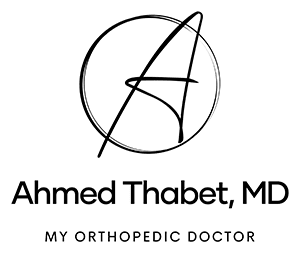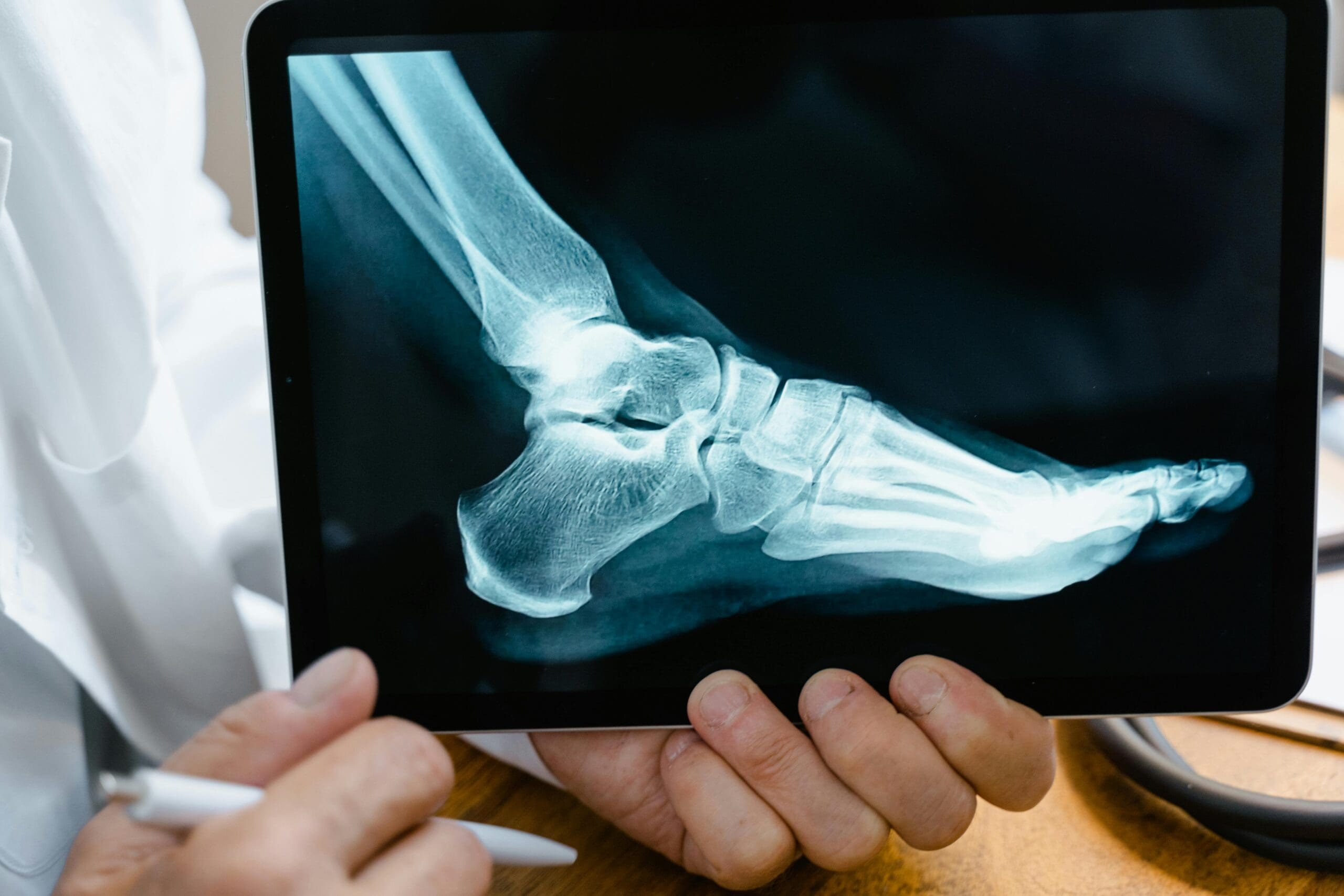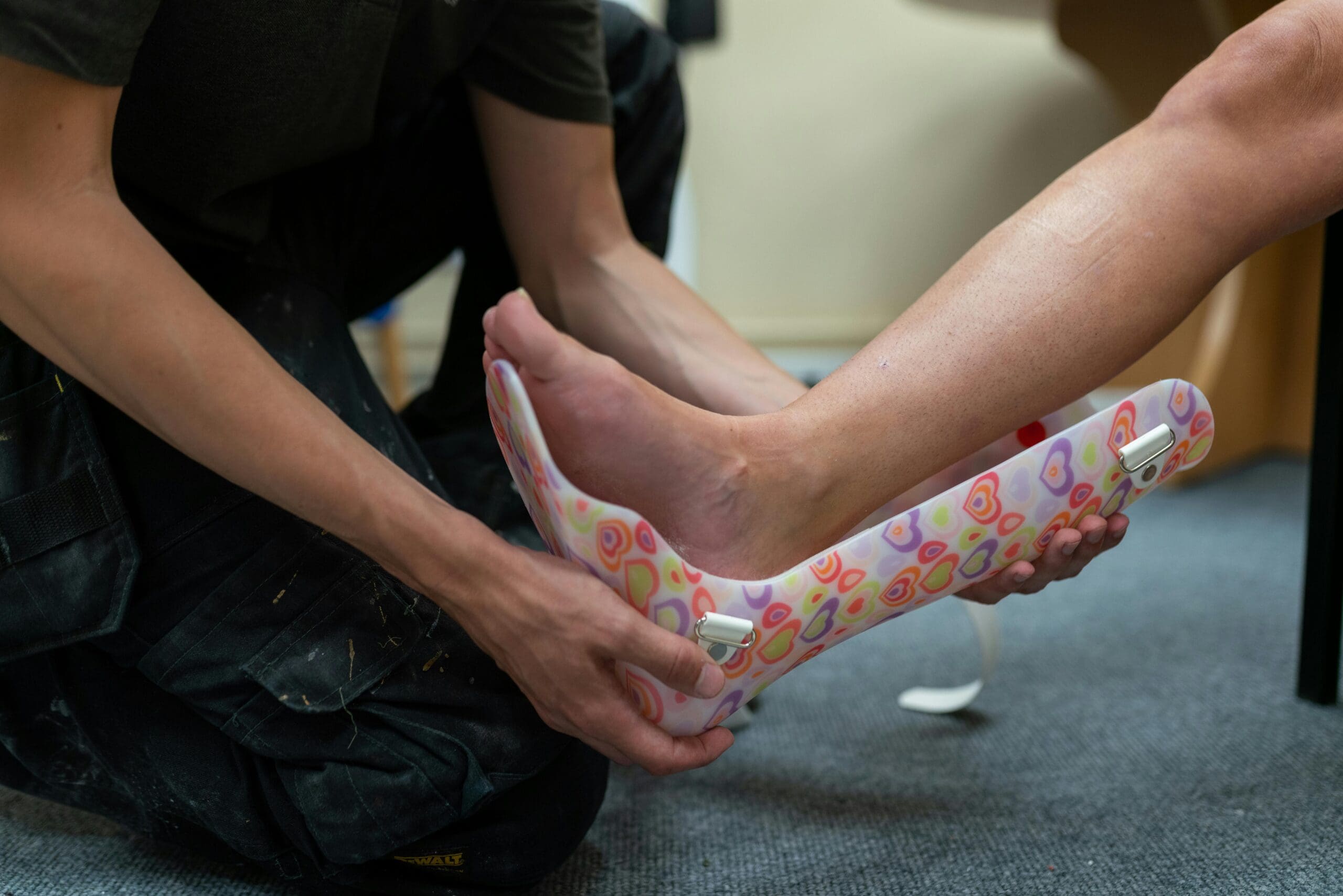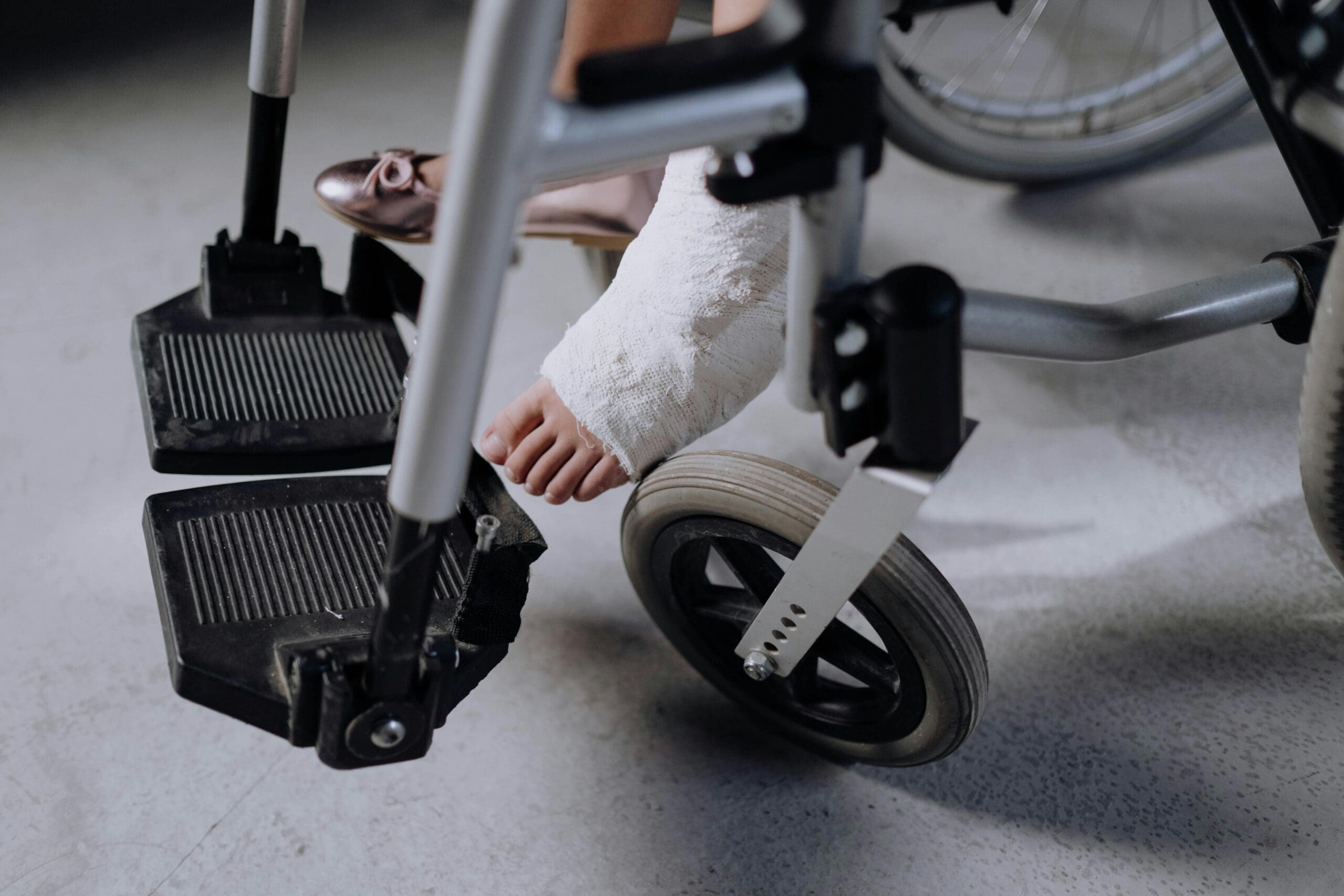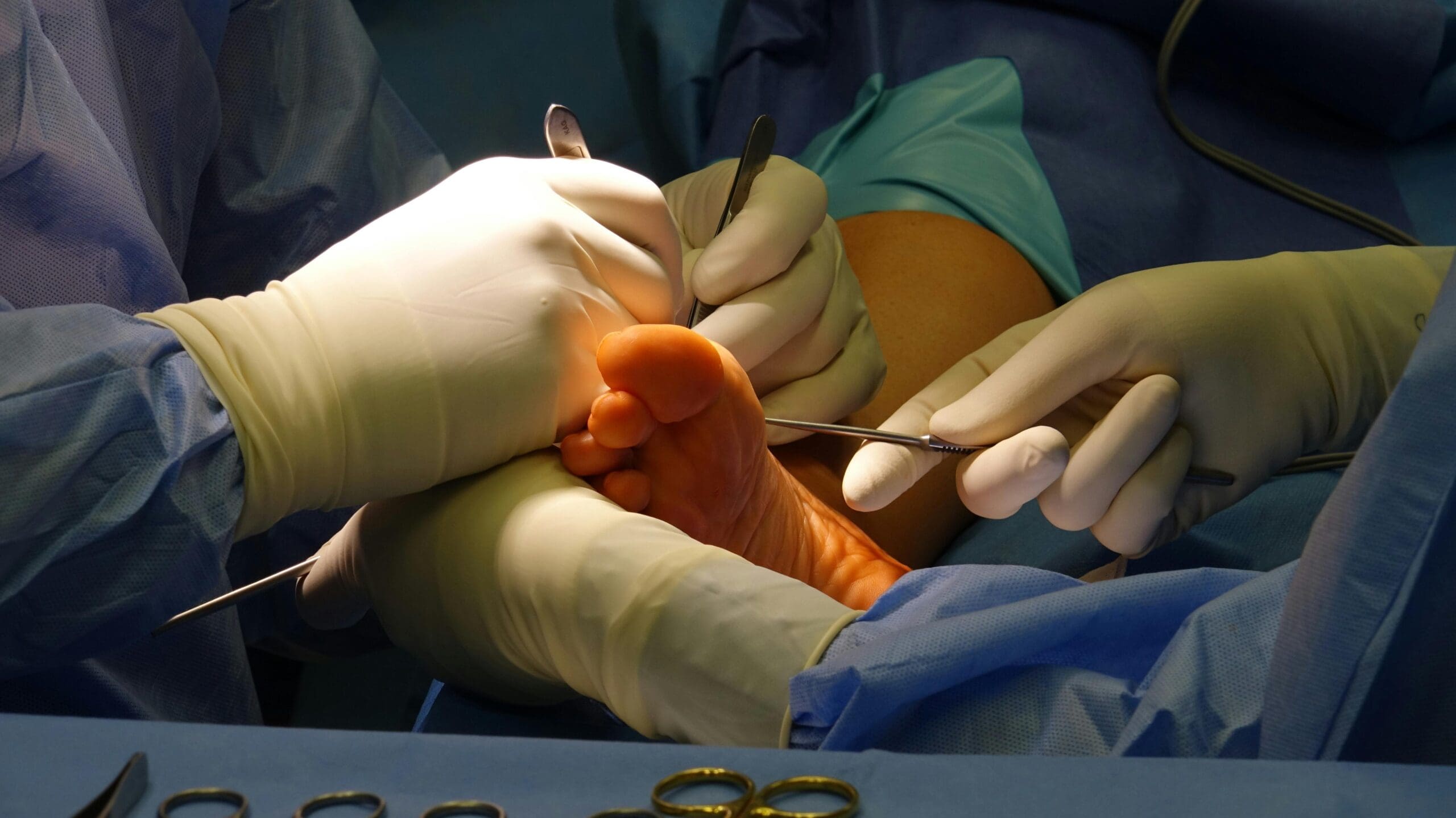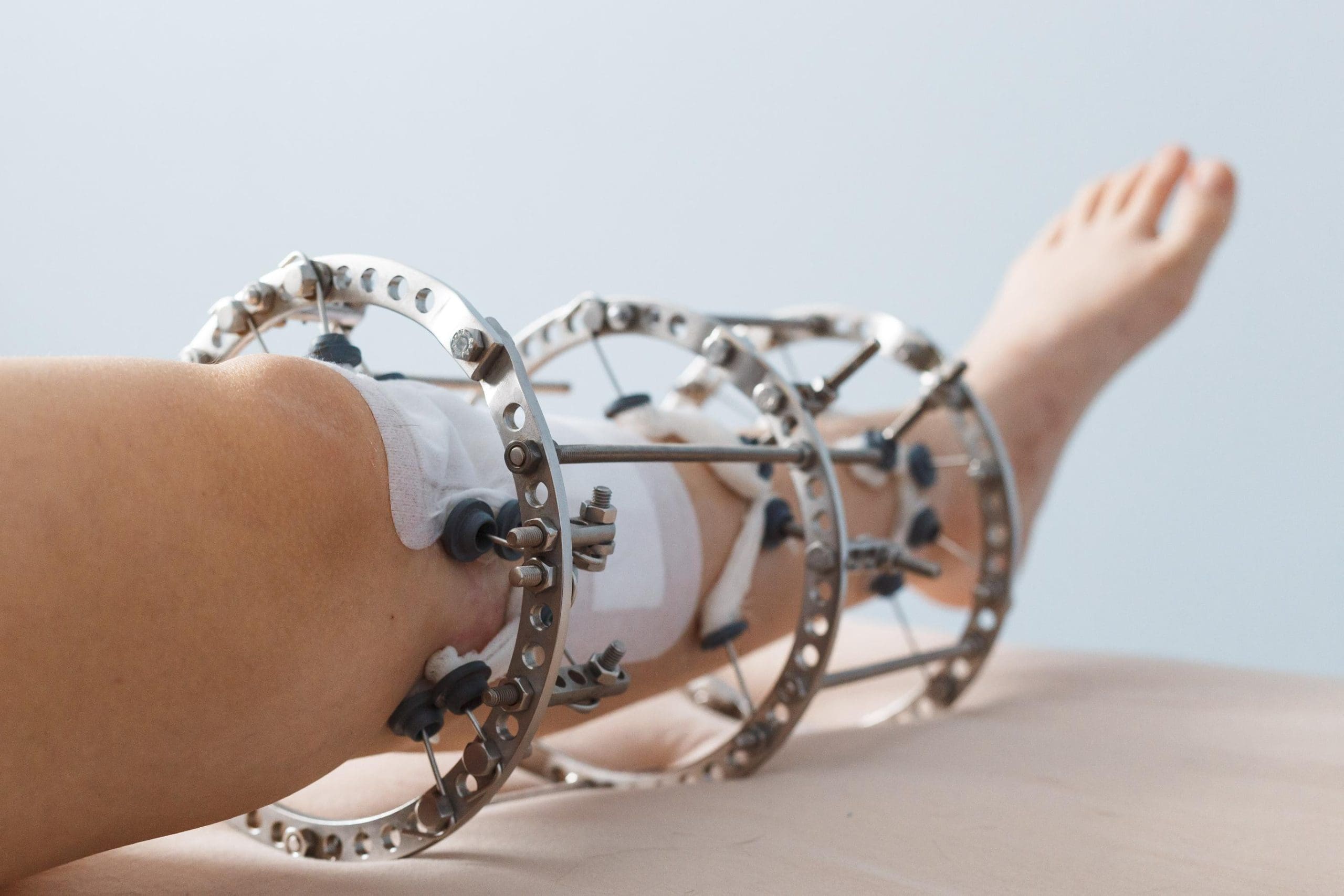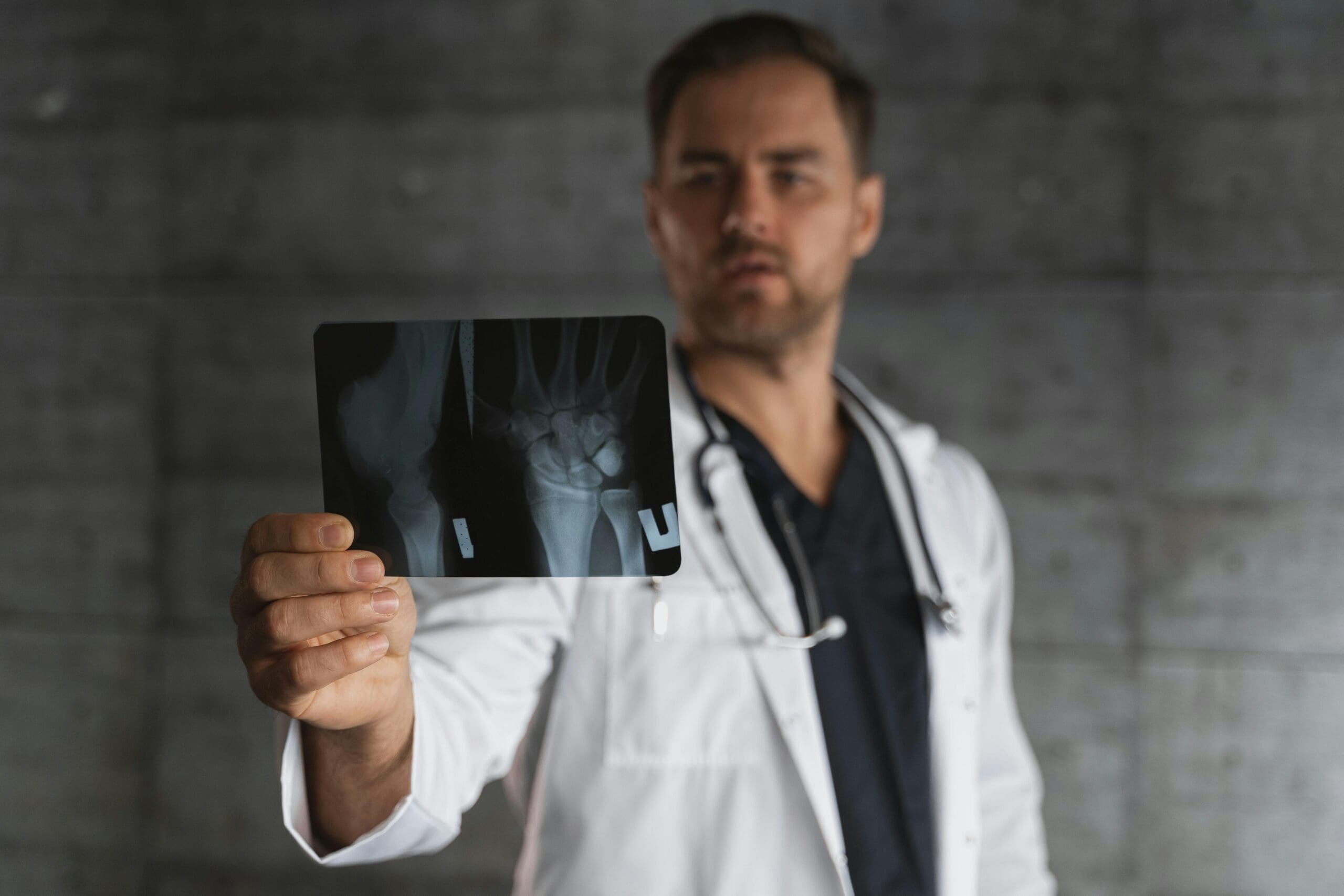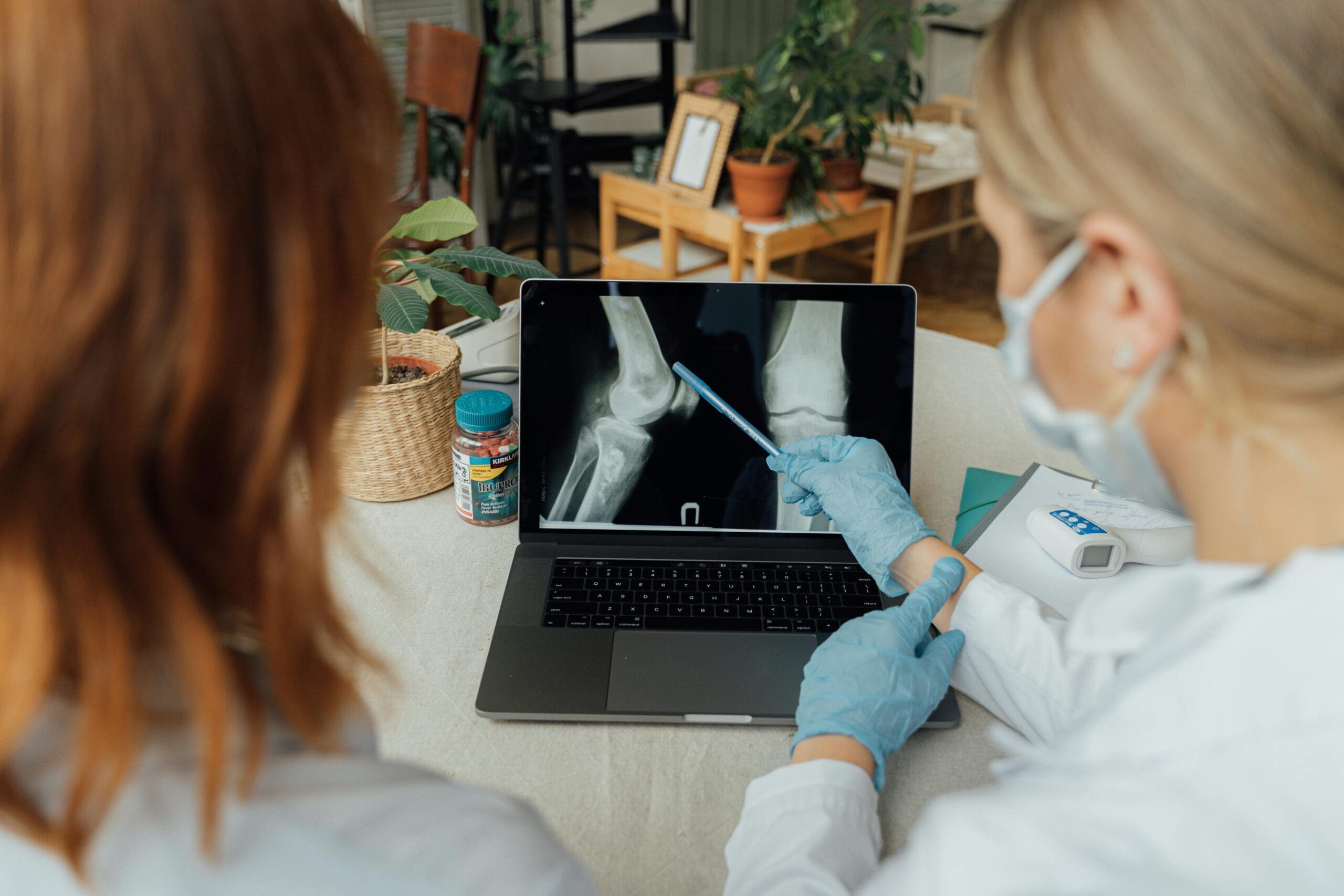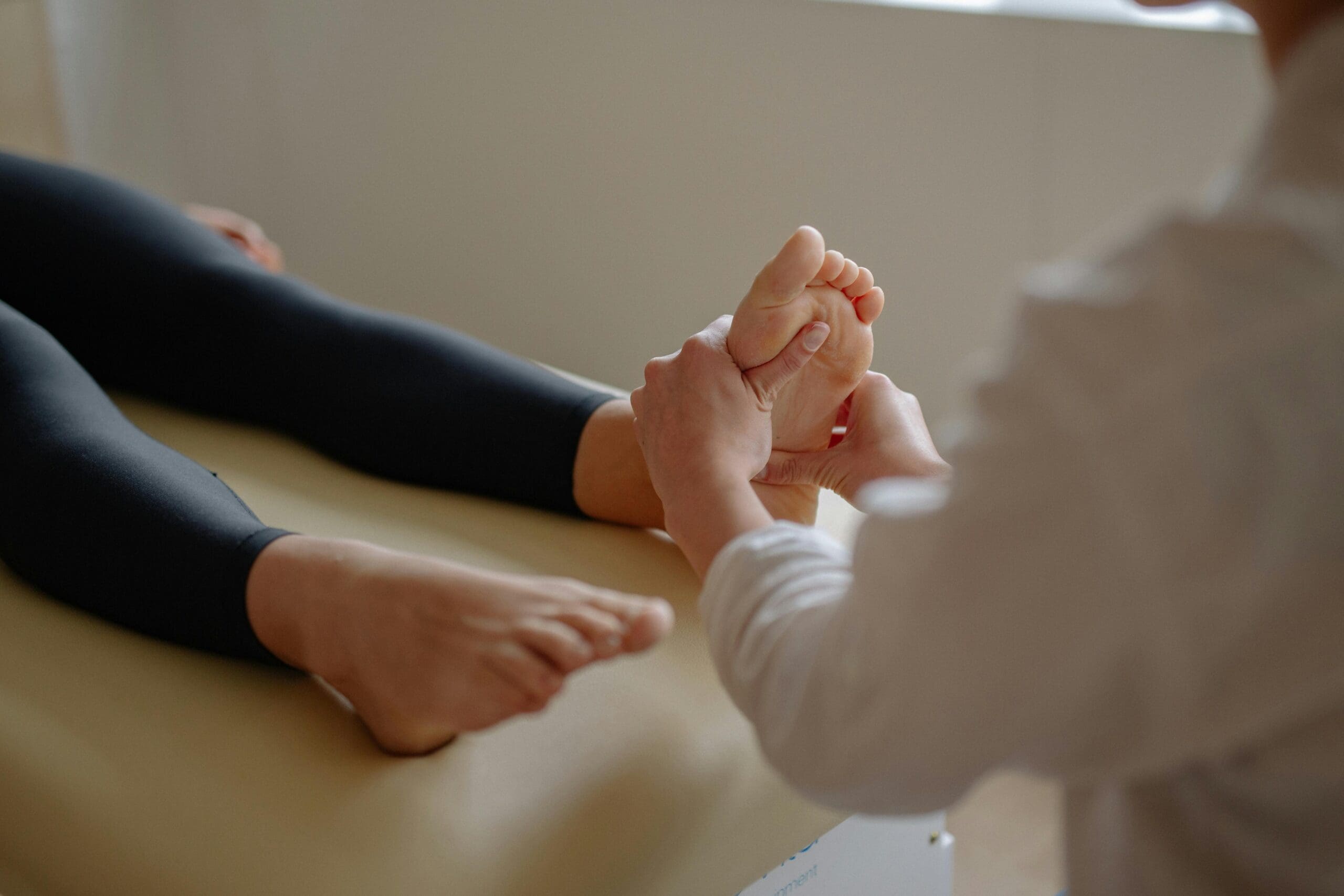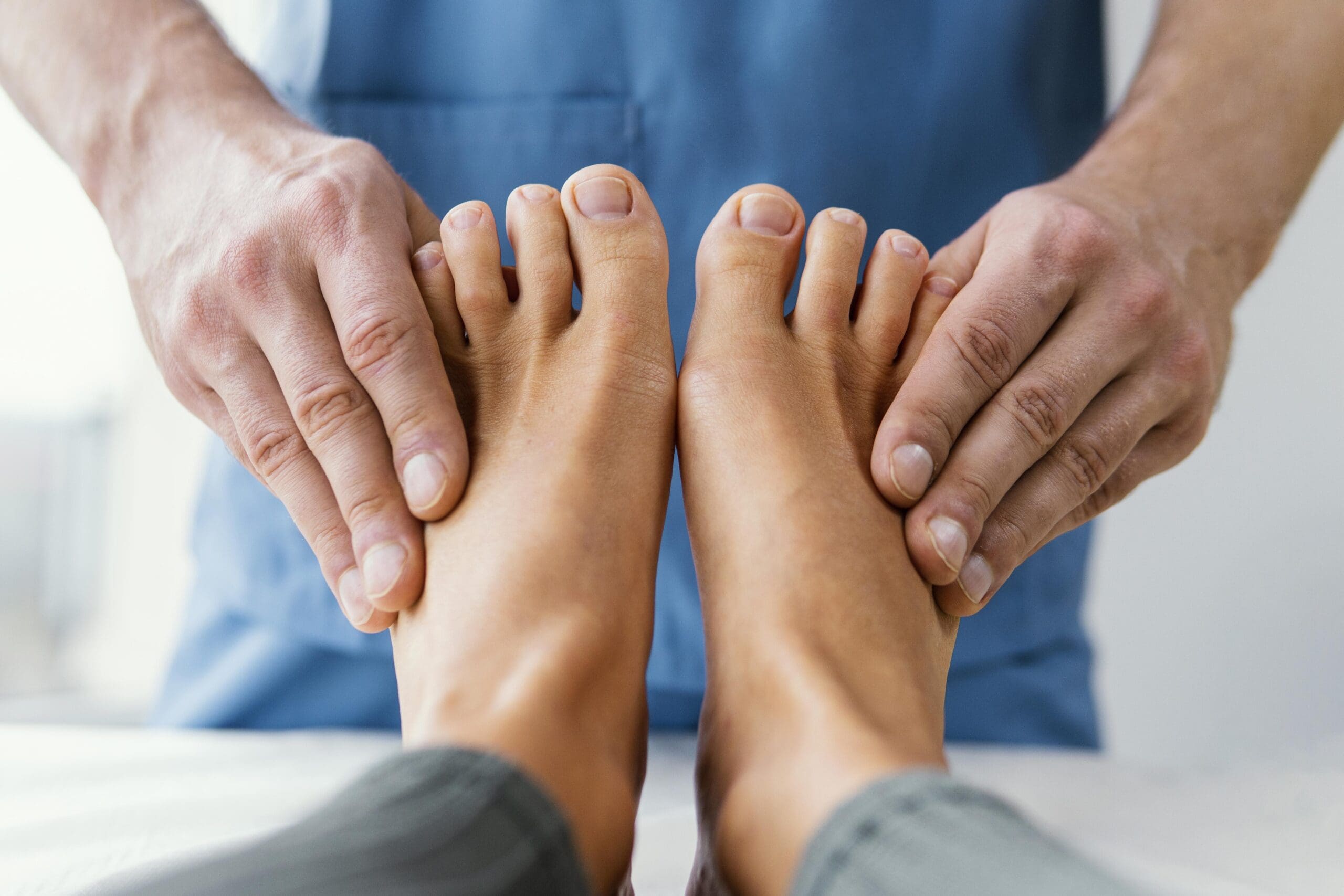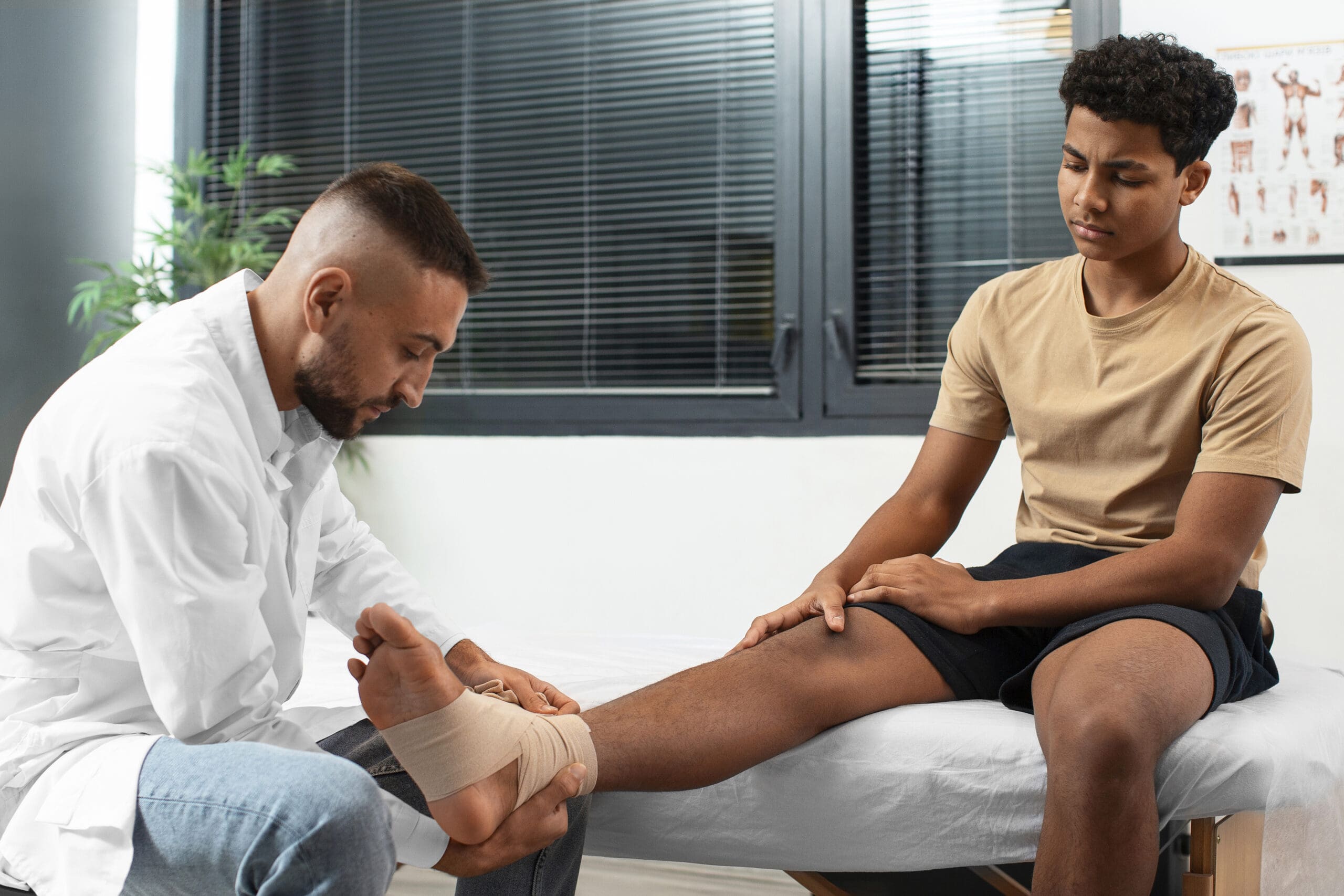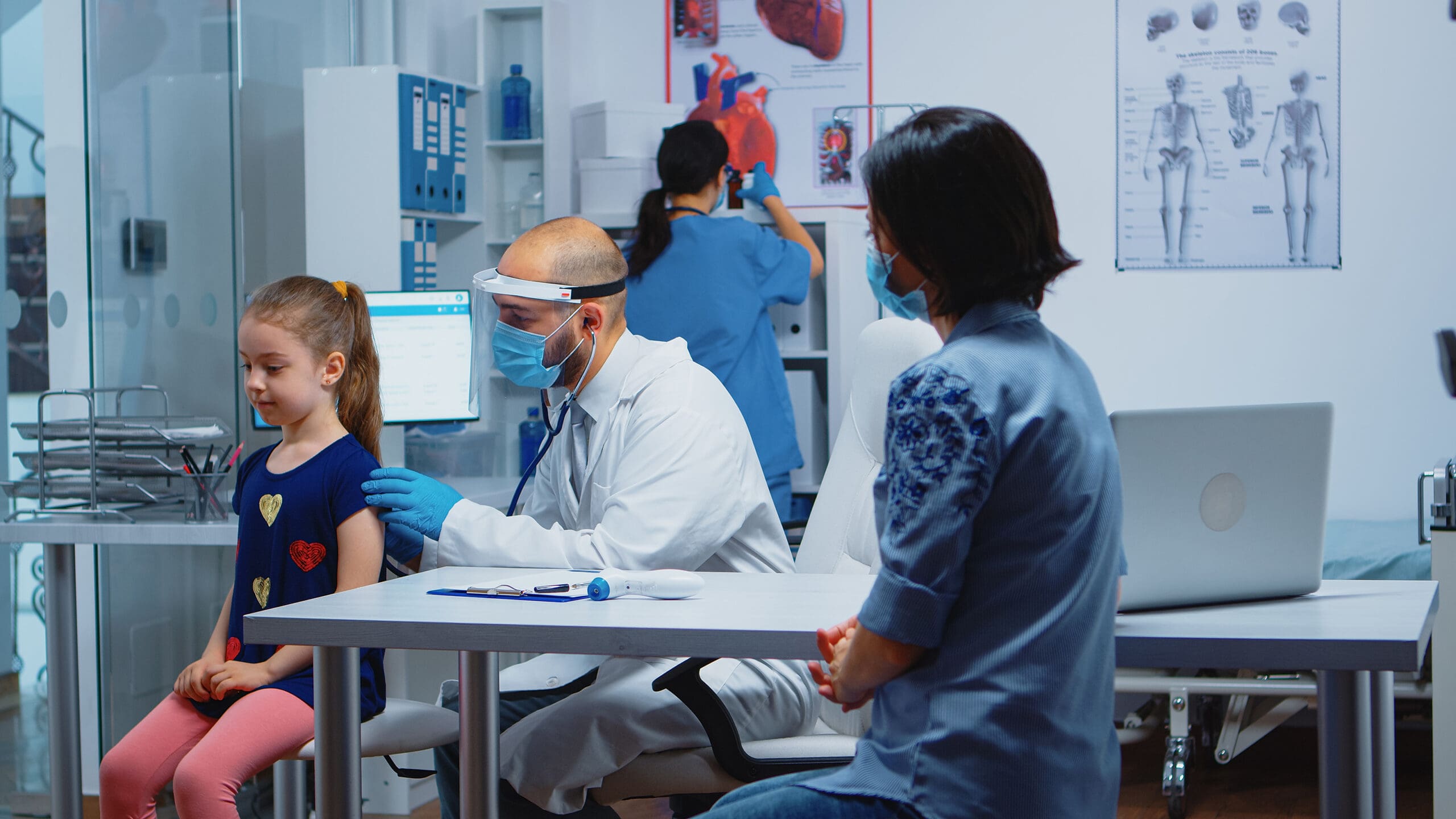Foot and limb deformities can affect people of all ages and often interfere with walking, movement, and daily life. These conditions may be present at birth, arise during growth, or result from injury, infection, or past surgeries.
Dr. Ahmed Thabet is a specialist in complex orthopedic deformity correction with extensive experience in treating these conditions in both children and adults.
We offer state-of-the-art surgical techniques and non-surgical therapies to restore alignment, correct deformities, and improve patient outcomes. As part of our broader approach to orthopedic surgery, we ensure every treatment is customized for maximum mobility and long-term function.
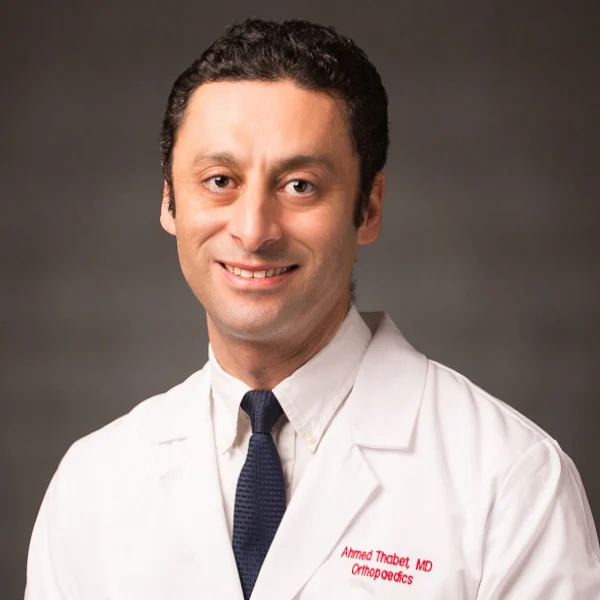
Dr. Ahmed Thabet Hagag sees patients in Angleton, TX and throughout the greater Houston area.
Comprehensive Evaluation and Diagnosis
Successful treatment begins with a comprehensive physical examination, advanced imaging, and a full understanding of the patient’s history.
Dr. Thabet carefully evaluates the extent of limb length discrepancy, angular deformities, rotational abnormalities, and the integrity of the soft tissues. Each diagnosis is individualized, ensuring the most appropriate and effective treatment plan for the patient’s age, activity level, and health status.
Types of Deformities Treated
We treat a broad range of deformities, including:
- Limb Deformities
- Bowlegs (genu varum)
- Congenital limb deficiency:
- Fibular hemimelia
- Congenital short femur
- Tibial hemimelia
- Radial club hand
- Ulnar club hand
- Knock knees (genu valgum)
- Rotational deformities (in-toeing, out-toeing), internal tibial torsion, increased femoral anteversion
- Limb length discrepancy/leg length discrepancy, limb difference,limb shortening
- Complex multi-planar deformities
- Congenital and post-traumatic limb malalignment
- Foot and Ankle Deformities
- Clubfoot and recurrent clubfoot
- Neuromuscular deformities (e.g.,due to cerebral palsy or Charcot-Marie-Tooth disease)
- Flatfoot (pes planus) and high-arched feet (pes cavus)
- Brachymetatarsia, vertical talus, tarsal coalitions
- Deformities from trauma, infection, or failed surgeries
- Complex foot and ankle deformities due to charcot arthropathy due to uncontrolled diabetes or neuropathic conditions
Treatment Options
We offer a wide spectrum of treatment strategies, from observation to intricate surgical correction. Each treatment plan is customized based on the patient’s age, type and severity of deformity, and long-term goals.
Non-Surgical Approaches
For mild or early-stage deformities, we offer non-invasive therapies such as:
- Bracing: Helps guide bone growth or maintain alignment during development.
- Shoe lifts: Compensate for leg length differences and improve gait symmetry.
- Orthotics and prosthetics: Provide support, alignment, or functional improvement for deformities.
- Observation and watchful waiting: Used when immediate intervention isn’t necessary, allowing time to monitor natural development or changes in the deformity.
These treatments are often suitable for younger patients whose bones are still growing.
Surgical Treatment Options
When conservative management isn’t enough, we offer advanced surgical procedures tailored to the specific deformity and patient profile.
Corrective Osteotomies
Deformities of the bone are corrected through osteotomy, a procedure where bone is cut and repositioned. In cases involving complex deformities, we may perform double-level osteotomy (e.g., in both the proximal and distal femur) to achieve proper alignment.
Gradual Correction Using External Fixation
For angular, rotational, or length-related deformities, we often employ external devices such as circular external fixators (e.g., Ilizarov or hexapod systems). These allow gradual correction over time while maintaining precise control of the bone segments.
Internal Fixation and Internal Devices
Whenever possible, we use internal fixation or internal devices such as motorized intramedullary nails (e.g., PRECICE) to correct deformities. These provide improved patient comfort and eliminate the need for external hardware.
Limb Lengthening Procedures
Many deformities are accompanied by limb length discrepancy. In these cases, we may incorporate methods used in our bone and limb lengthening services, applying limb lengthening techniques through either external fixation or internal lengthening nails to restore symmetry.
Treatment involves:
- Distraction phase: gradual separation of the bone segments at a rate of ~1 mm/day
- Consolidation phase: maturation and strengthening of the new bone tissue
Foot and Ankle Deformity Reconstruction
We also offer specialized procedures for the foot and ankle:
- Reconstructive surgery for clubfoot, brachymetatarsia, and neuromuscular deformities
- Ankle distraction arthroplasty for joint preservation
- Complex post-traumatic foot deformity correction and limb salvage
Bone Infection and Deformity Correction
In cases involving bone infection or malunion/nonunion, Dr. Thabet uses advanced techniques like bone transport and soft tissue reconstruction to restore function and prevent limb loss.
Bone transport is a surgical method used to fill large gaps in bone resulting from infection, trauma, or failed surgeries. A segment of healthy bone is gradually moved across the defect using an external fixator, encouraging new bone to regenerate in the gap.
Soft tissue reconstruction involves surgical procedures that repair or replace damaged muscles, skin, or tendons around the affected area. This is essential for promoting healing, protecting internal structures, and ensuring proper limb function.
Recovery and Follow-Up Care
Recovery doesn’t end in the operating room. A structured rehabilitation plan is essential for maximizing the benefits of deformity correction.
Rehabilitation plays a key role in helping patients regain full range of motion, strength, and function after surgery. These tailored rehab protocols are especially important during the consolidation phase of healing and are adapted to the demands of each surgical treatment.
Get Expert Care for Foot and Limb Deformities
Dr. Thabet offers personalized treatment plans for children and adults with congenital, developmental, or post-traumatic deformities. Whether you’re seeking a second opinion or ready to move forward with care, our team is here to guide you through every step, from diagnosis to full recovery.
FAQs
How do you treat limb deformities?
Treatment depends on the type and severity of the deformity. Some patients benefit from non-surgical methods like bracing or orthotics, while others may require corrective osteotomies, external fixation, or internal devices. Dr. Thabet tailors every plan to the individual, prioritizing function, alignment, and long-term outcomes.
Can leg deformity be corrected?
Yes, most leg deformities can be corrected using a combination of surgical and non-surgical techniques. Whether it involves realigning bone segments, lengthening a shortened limb, or addressing joint instability, our goal is to restore mobility and improve quality of life.
What is the most common limb deformity?
The most common limb deformity is genu varum, also known as bowlegs. This condition causes the legs to curve outward at the knees and can be congenital, developmental, or related to underlying medical conditions such as Blount’s disease or rickets.
How can I find a foot and limb deformity specialist near me?
If you are searching for a foot and limb deformity specialist near you, Dr. Thabet offers expert care in Angleton, TX and welcomes patients from Houston, League City, Galveston, Lake Jackson, and surrounding Southeast Texas communities.
